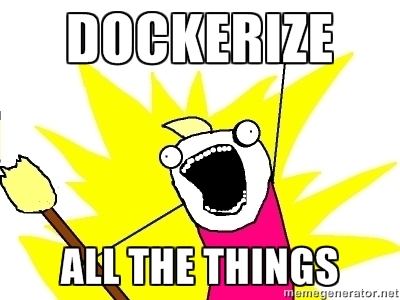Dockerized Jekyll
This is my first Today I Learned post on this blog and what else would be a better candidate for it than Jekyll? :)
Hello Jekyll
It’s been about 20 hours since I started setting up my Jekyll blog, so I’m still learning all the cool stuff this tool can do. Nowadays I use Ubuntu 18.04 at home, so setting up Jekyll only took a few minutes and like 2 or 3 command line queries. But I also would like to take notes on my workstation where I stuck with Windows 10, and where the setup is a bit more complicated and involves installation of other stuff as well.
Then I asked myself the question: Isn’t there a Docker image with Jekyll installed and set up? (Like, for example, Jenkins does?) Actually there is (are)!

Hello Dockerized Jekyll!
First I started with a minimalistic Dockerfile that copies the blog into the container and starts up Jekyll.
FROM jekyll/jekyll
ADD . /srv/jekyll
ENTRYPOINT ["jekyll", "serve"]
But that way I lost the automatic regeneration feature when I modified a file. So I decided to use the Docker volume solution described in the readme file.
There were some issues with the permissions, but disabling and re-enabling Docker shared volumes solved it for me. Also, under this GitHub issue I found a cool docker-compose file:
version: '3.2'
services:
jekyll:
image: jekyll/jekyll:minimal
command: jekyll serve --watch --force_polling
ports:
- 4000:4000
volumes:
- .:/srv/jekyll
Note that I use the “minimal” version to save space and bandwidth – it is enough for me (at least for now).
Place it in the root directory of your blog and you can fire it up with a simple docker-compose up command.
Also, don’t forget to add the exclude: [docker-compose.yaml] line in your _config.yml so Jekyll won’t copy it in your _site folder!